Wood of the gods: Camarines Sur farmer enters agarwood business after realizing its high value and profit in the market
By BENJAMIN SARONDO
It was in November 2021 that the Department of Environment and Natural Resources (DENR) allowed Filipinos to commercially propagate agarwood (Aquilaria malaccensis), one of the world’s priciest trees and an endangered one.
In Barangay Antipolo Tinambac, Camarines Sur, 22-year old Jepherson Mark Parrcia, from Agar Wood Plant Nursery, together with his father, started to cultivate and sell agarwood the same year agarwood propagation became legal.
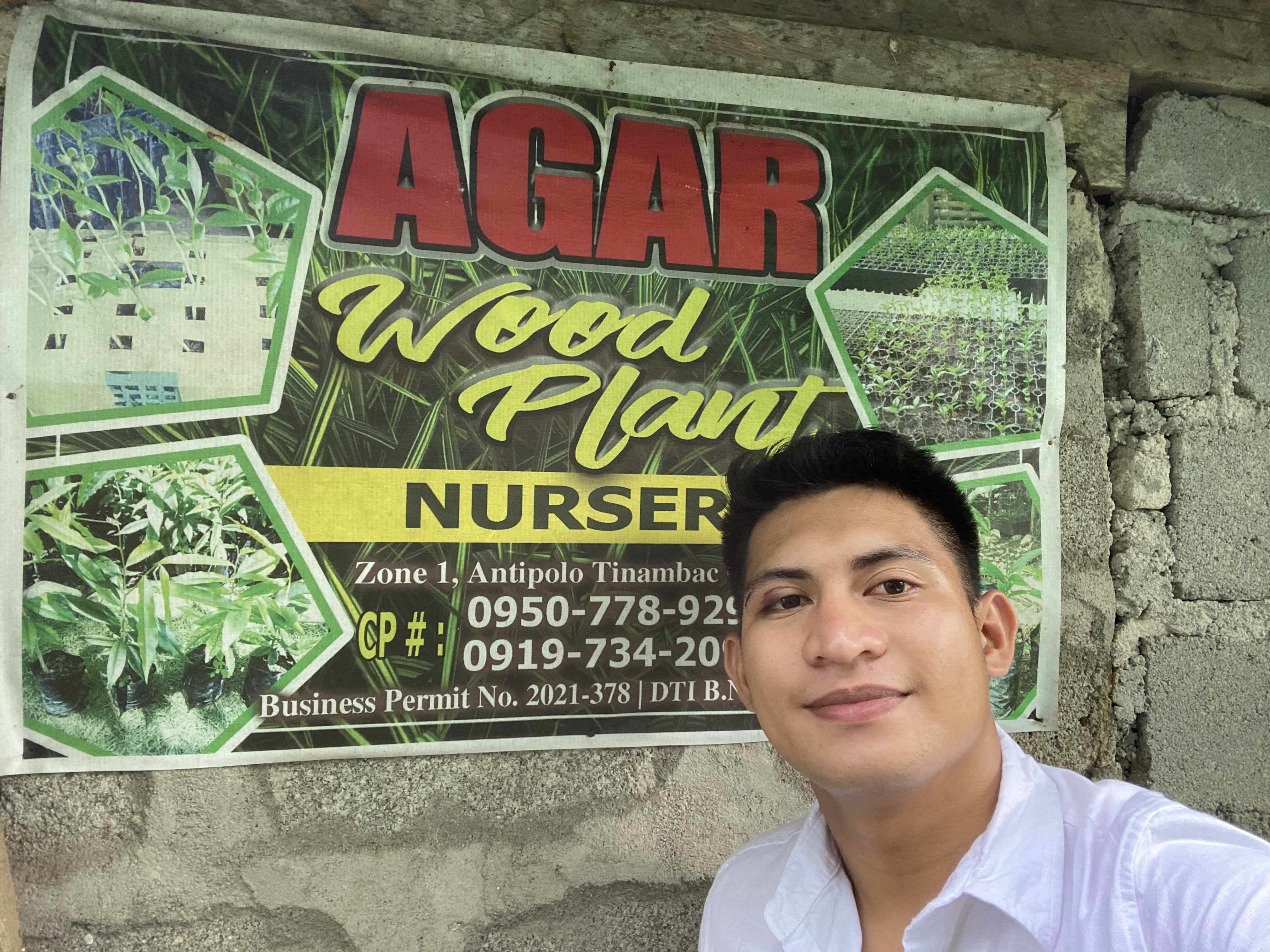
“It was during high school when I decided to pursue managing our agarwood farming business, and my farmer father was my mentor at that time,” Parcia said in Tagalog.
Parcia did not continue his education after finishing high school, but he always believed that his focus was more on agriculture and farming, and he wanted to improve his knowledge and nurture his skills by having first hand experience in the field.
Learn more about agarwood
Agarwood, locally known as "lapnisan," is commercially utilized in religious and wedding ceremonies as perfume and incense. Aside from its aromatic resin, it has also been used for medical purposes as it provides many health benefits and treatments for various illnesses.
Most of the endemic agarwood trees can be traced to the forests of Mindanao. Nine of the 21 known Aquilaria species are found in the Philippines, and six of these species are endemic or only found in the country.
Currently, they supply agarwood seedlings to different provinces in the country, making 20 to 40 thousand pesos in income per month just for the seedlings.
Before allowing the farming of agarwood, a lot of locals were arrested for illegally selling this tree, which cost tens of millions. According to the DENR-Biodiversity Management Bureau (DENR-BMB), a kilogram of first grade agarwood costs five million pesos, which means a whole tree may cost more than that.
Its high value in the market causes a lot of locals to pursue selling it without permission from the government. And soon, it may face extinction if not properly cultivated and sustained.
No shortcut
Parcia stated that in venturing into the agarwood business, one must not rush things, including compliance with the requirements, return of investments, and many more, since all of this will come into place. What a business owner must prioritize is licensing the business, since agarwood farming is highly-regulated in the Philippines.
The first step the Parcias took was to apply for a Wildlife Culture Permit from their DENR Regional Office in Camarines Sur, and others should do the same and apply to the DENR office where their farm or plantation site is located. Then they registered their business with the Community Environment and Natural Resources Office to get a private tree plantation certification. They also acquired a Local Transport Permit for the legalization of the transport of their legally acquired seeds, seedlings, agarwood, and other agarwood by-product derivatives.
Despite the approval of DENR to commercially propagate agarwood, it does not imply that one can be neglectful, especially with the requirements. As DENR highlighted, they are allowing agarwood propagation, but it is highly-regulated, so compliance with the requirements and conformity with the rules and regulations are needed.
Taking care of agarwood plant
Having a background in agriculture, Parcia stated that he is not challenged by taking care of agarwood seedlings. “We have experience in agriculture; before, we used to plant cacao and narra, and we sold them. Then we shifted to agarwood because of its value and price in the market,” Parcia said.

Parcia also said that they are very hands-on in taking care of their agarwood seedlings since they are vulnerable to pests and insects, especially when they are still small.
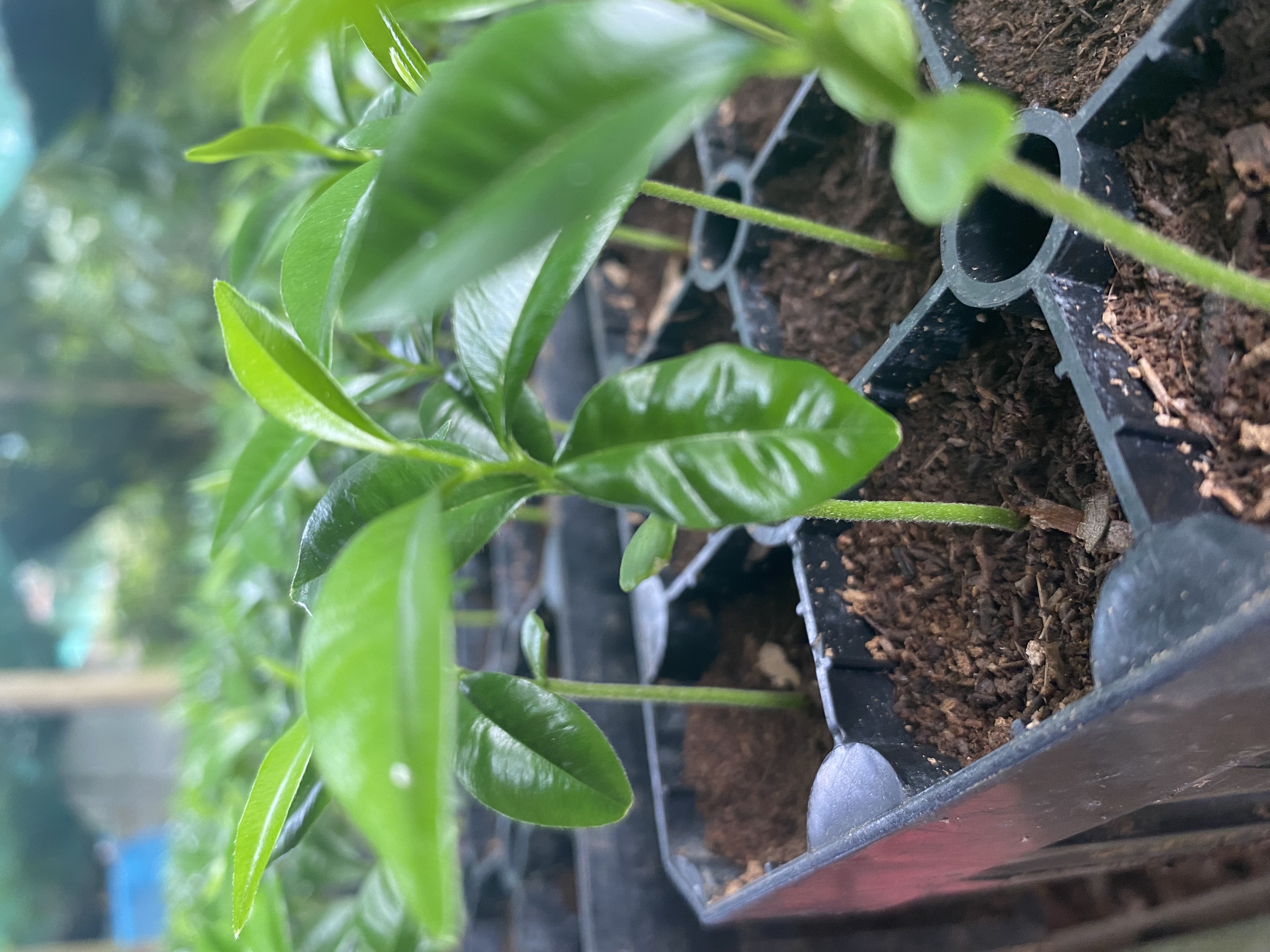
“My father and I are daily monitoring our agarwood seedlings and checking for infestations, and we water them daily as well,” Parcia added.
Parcia and his father built their agarwood nursery, a place where they plant and grow agarwood seedlings. “We have secured a small lot in our area, and there we built our agarwood nursery. We ensure that all the essential things for agarwood seedlings to grow are provided,” Parcia said.
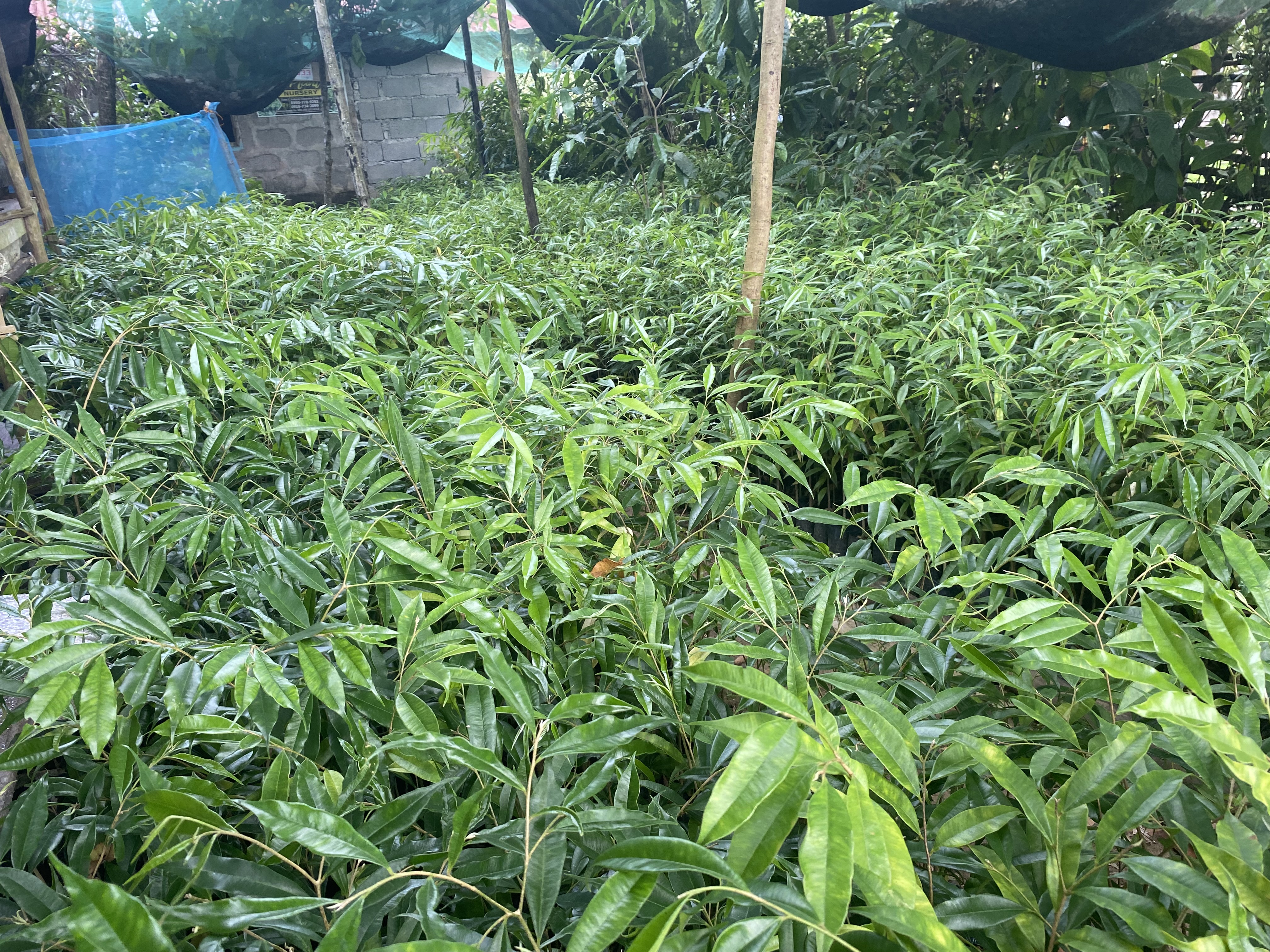
Agarwood seedlings are not demanding with the temperature, Parcia stated, but there must be shades since they are sensitive to sunlight.
Eyes on the price
Parcia shared how they encountered agarwood farming and what got them interested in starting their own business. “Before, my father and I were experienced with agriculture, but we also do construction work on the side. I remember there was a time when our co-worker shared how a lot of agarwood farm owners from Leyte became wealthy,” Parcia added.
This is his dream, not just for himself but also for other small farmers. “With its high demand and high price in the market, it really helped us financially. We want other small farmers to plant and grow agarwood trees as well, so in the future, they can sell it for a reasonable price,” Parcia shared.
Currently, they sell their agarwood seedlings for 250 pesos; the plant is five to six inches tall, and they only sell 20 minimum plants, but for small farmers, they are open to giving discounts.
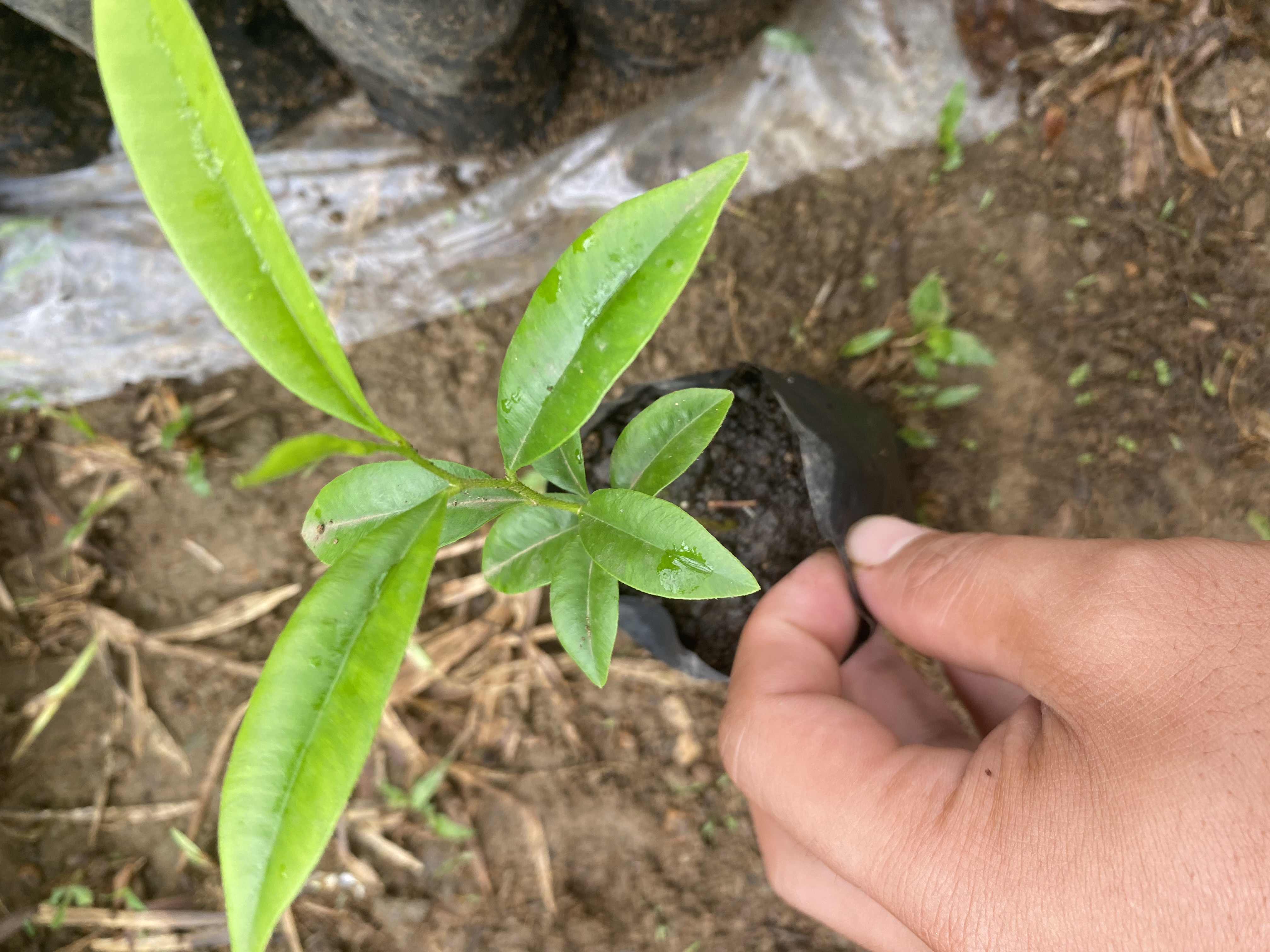
They transport them personally to their customers, even to places like Cagayan, Iloilo, Zamboanga, and many more. They do this to ensure that no agarwood seedling is damaged and also to educate their customers on how to properly take care of their agarwood seedling.
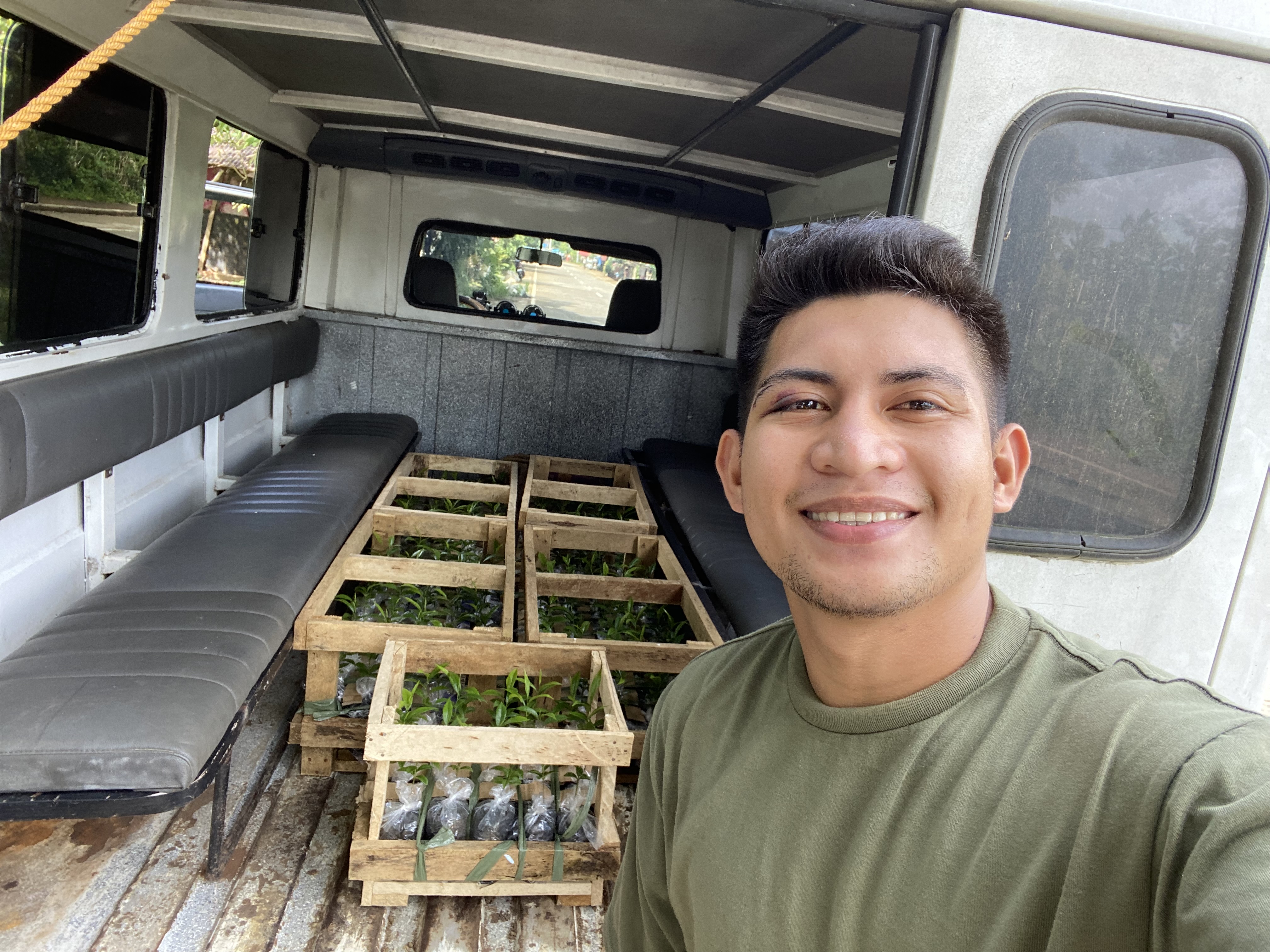
In the next 10 years, according to Pacia, the value of agarwood trees will be in the tens of millions of pesos, so raising an agarwood tree is a great investment. While waiting for them to grow, they also sell agarwood seedlings and plants, which already have a high price.
Agarwood farming is a business that is profitable from seedlings to trees. Its value and price in the market are already high, which is why a lot of farmers are interested in planting and growing them. But it comes with great responsibility; it is anticipated that agarwood may become extinct when improperly cultivated and sustained.
Parcia said that the expectation for the income must be set aside at first; a farmer must be focusing on the sustainability of agarwood. Those who are interested in starting their agarwood business must adhere to all the rules and regulations and complete the necessary requirements for its legalization.
As Parcia said, “There is no shortcut in agarwood farming.”
Photos by Jepherson Mark Parcia